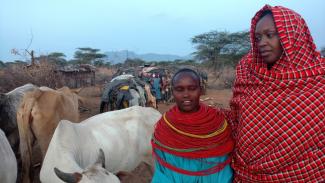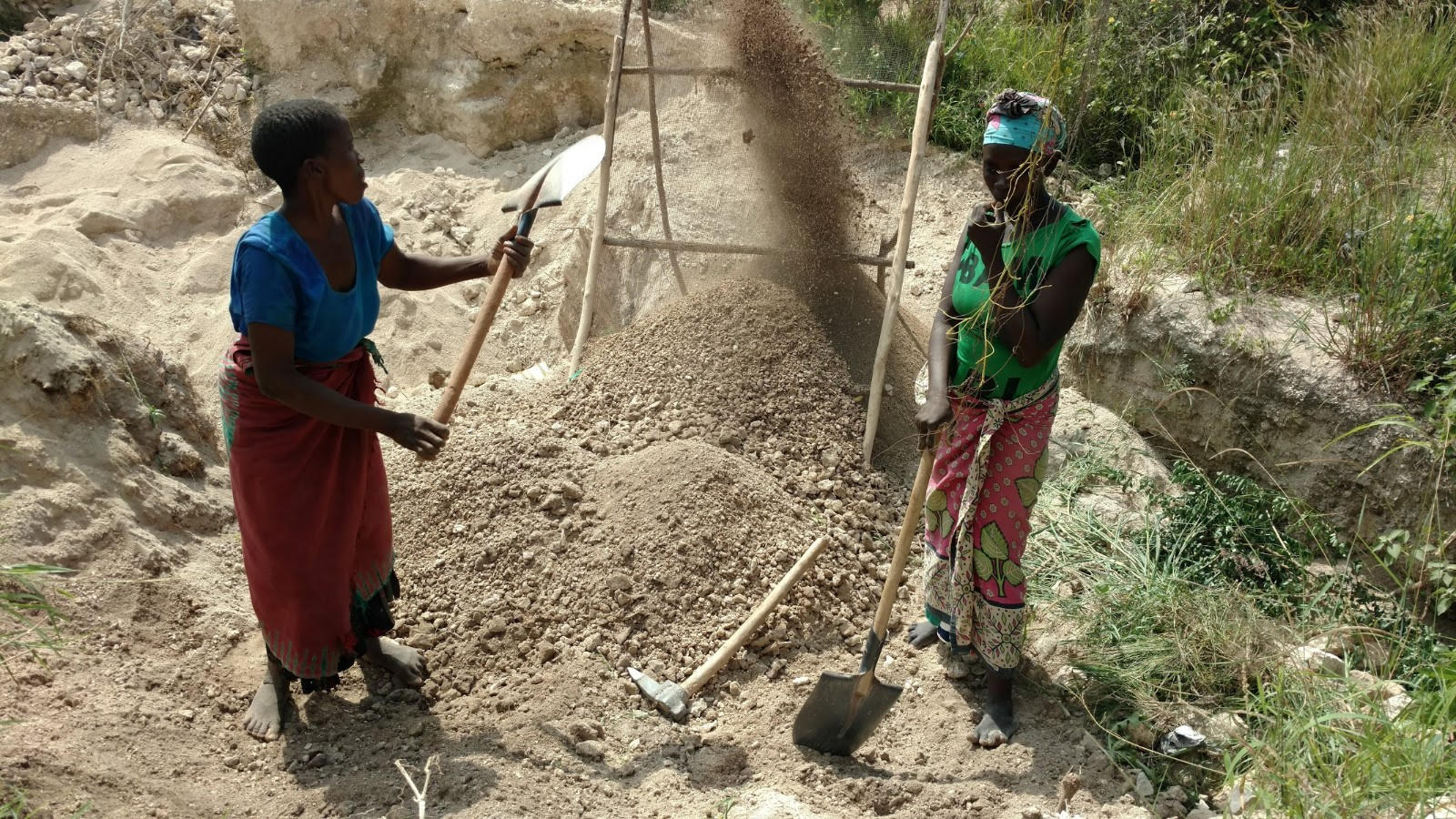
Both in law and in systems of administrative land practice, Kenyan women’s land rights are far from being equal to those of men. Kenya Land Alliance (KLA) was founded in 1999 as a membership nonprofit, non-partisan network and registered as an NGO in 2013. The Women’s Land Rights program is a subset of KLA dedicated to the realization of constitutional provisions on women’s land rights as a means of promoting gender equality in line with local, national, regional and global commitments. The program contributes to the national discourse on the far-ranging effects of equal access to sustainable land ownership on women’s economic equity and direct well being. Because land is a fundamental resource, women’s access to land in Kenya is a primary human rights issue.
As Kenyan women address systemic barriers to their own social, political, and economic freedoms, they contribute to the creation of a more equitable resource management system. Current systems of land management privilege male access and perpetuate the economic circumstances preventing women from acquiring material and political independence. The Kenyan constitution largely regards land in the light of property and fails to address land as a life altering social-economic resource that is ultimately key to survival. In creating systems of land management that benefit women, the natural landscapes of these places also benefit, as women’s environmental knowledge contributes to the health and maintenance of Kenyan social-ecological systems overall.
Indigenous women are essential to the agriculture and livestock sectors (representing 80 percent of the workforce) while carrying vital knowledge that is required to keep these sectors healthy and thriving. Just as importantly, KLA’s research has shown that Kenyan women are at a decreased risk of abuse when they are able to independently access and produce life-sustaining resources. Reducing violence against women requires women to have ownership in natural resources and food production. Women who maintain access to sustainable land have the economic ability to leave violent domestic situations and produce their own incomes through the independent production of essential resources, such as food. Land is also a political asset, assuring inclusion in decision-making. Through a policy focus on the need to be fully accountable to women and girls, women’s equity and overall sense of well being increases. In contrast, disparity in land ownership increases risk of violence against women and reduces critical self-sustaining agency in women and girls. The extraction and exploitation of natural resources often leads to women being further dissociated from tracts of land, displaces entire communities, and increases political complexity in traditional resettlement issues.

Photo: Celebrating title deeds issued to six women in Kericho County, Kenya.
Photo by Kenya Land Alliance.
A 2018 study by KLA, Land Access Acquisition Compensation and Resettlement in the Context of Extractives on Community Land, examines the extractive policies and procedures that currently exist, potential improvements that could be implemented to mitigate obstacles for people who rely economically upon that land, and provides a list of policy recommendations. The study focused on the region of Turkana County where land is being explored for drilling by Tullow Oil. The majority of land in this county is unregistered and remains communally owned. Land equity is particularly important to the people of Turkana County, as the people directly impacted by the effects of resource extraction. Among the recommendations of the study are a national extractive policy to avoid land conflicts between local people and extractive industries; the urgent implementation of the Community Land Act of 2016 to commence the registration of communities and their lands; and direct compensation for extraction when multinational oil companies extract from locally valuable land.
Resource extraction disproportionately impacts rural women and only compounds the sociopolitical obstacles to land access and ownership. The Rural Women’s Rights Charter of Kenya similarly expresses the concerns of women living in rural areas on land issues and expresses the aspirations of women, which include the realization of secure women’s land rights and the security for land-based livelihoods. Women from 24 rural counties in Kenya participated in the creation of The Rural Women’s Rights Charter.
Through examining intersecting issues affecting women’s land tenure in agrarian Kenya, KLA works to ensure the equity of women’s overall outcomes and encourages collective action to improve the current political design of land tenure and systems of management. Women’s lived social, political, and economic experiences are critical, as is understanding systems of land administration, decision-making, transparency, ownership, and extractive compensation. How industry relates to local people, how corporate social responsibility relates to extraction, and the construction of contemporary legal policy are all potential indicators of sustainable progress. Understanding systems of land management coincide with understanding and implementing administrative land processes in the country. Continuing to examine the successful implementation of land management policies is essential to rural women’s land tenure in Kenya.

Photo: Artisanal women miners from Kwale County, Kenya. Photo by Naomi Lanoi.
Women taking part in essential decision-making processes about the use, management, and political oversight of Kenyan land is continually being brought to advocacy by KLA. Through advocating for the continued connection between women’s knowledge, well being, and outcomes in the maintenance of land systems, women are put into an improved socioeconomic position with greater political representation and self-sufficiency in the production of critical resources. When women are financially, politically, and socially independent, they become less vulnerable to situations of extreme violence, abuse, and financial dependence. They are also more free to confidently express their voices without fear of loss of basic resources essential to survival. Through eliminating these obstacles, women find freedom in their ability to manage the land and be involved politically in systems that are put in place to benefit the larger community. Legal frameworks must be addressed and implemented in Kenyan communities through representation of women’s voices in land policy.
Unless Kenyan women are able to participate equally in land management systems, these systems will continue to place women at a defined legal disadvantage and their economic outcomes will be adversely affected. Through the important advocacy work being done by organizations such as KLA, Kenyan women are being included in necessary decisions about their land and communities. Women are further advocating for the improvement of systems and policies and stating that the investments in land should be done in partnership with communities, county governments, stakeholders, and investors. Conflicts over resources would further diminish with greater transparency. These aims benefit entire systems and communities, and greatly empower Kenyan women.
—Naomi Lanoi (Maasai) is Women Land Rights programme officer at Kenya Land Alliance. Throughout her career, Lanoi’s goal has been to secure the social inclusion of women into empowerment programs and activities. Her current project at Kenya Land Alliance focuses on advocating for effective implementation of Constitutional provisions to secure women’s land rights.
Top photo: Naomi Lenoi (right) visiting a Samburu community in Kenya.
Photo by Kanyinke Sena.
